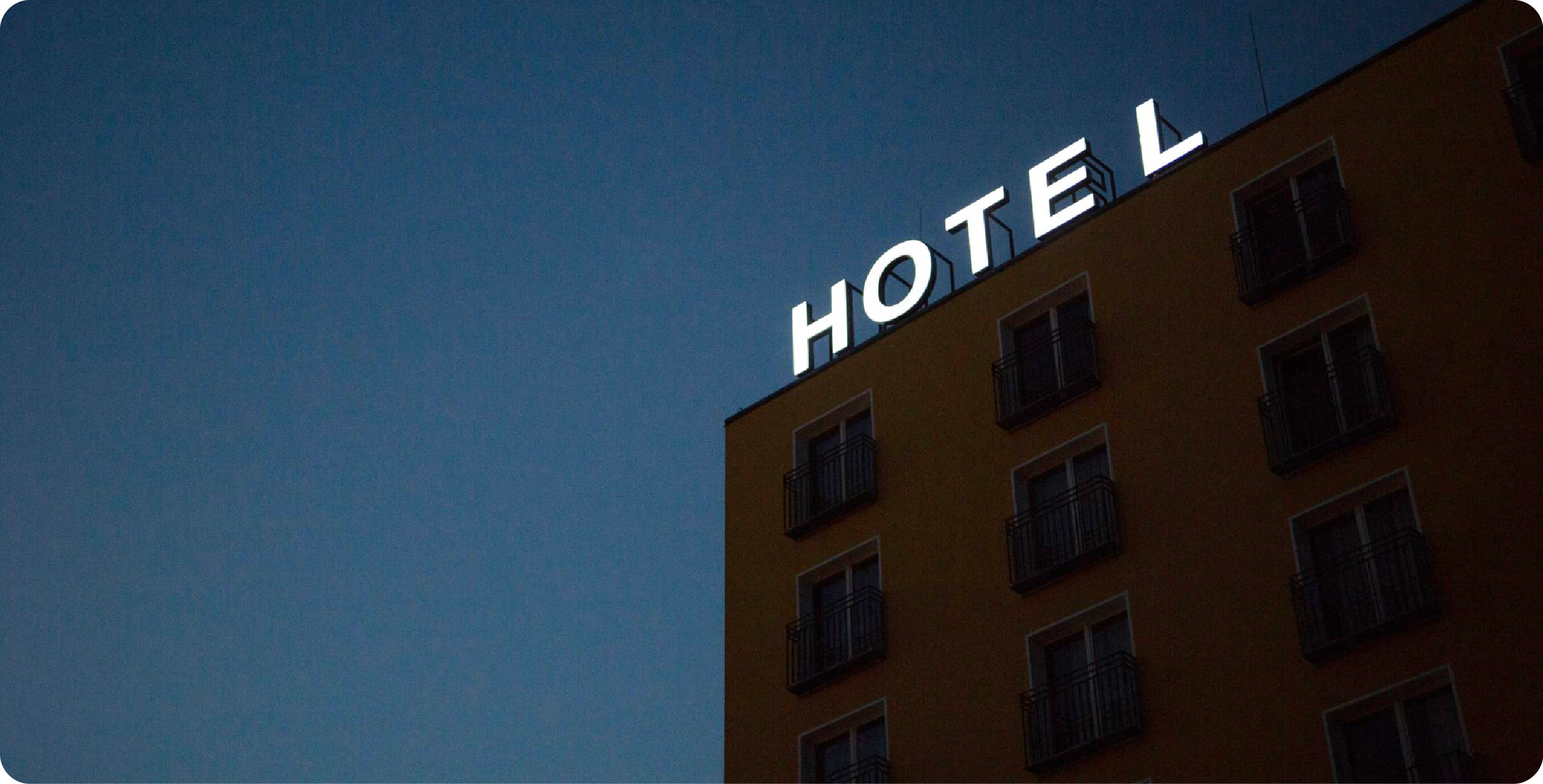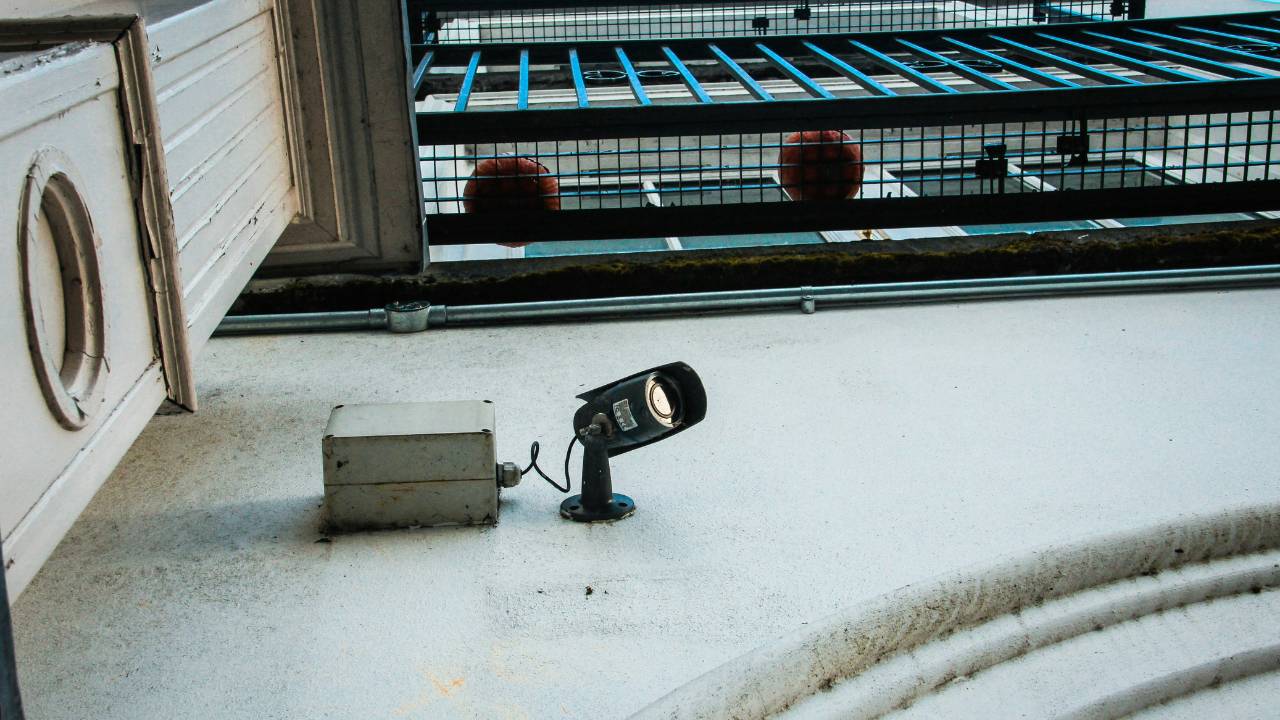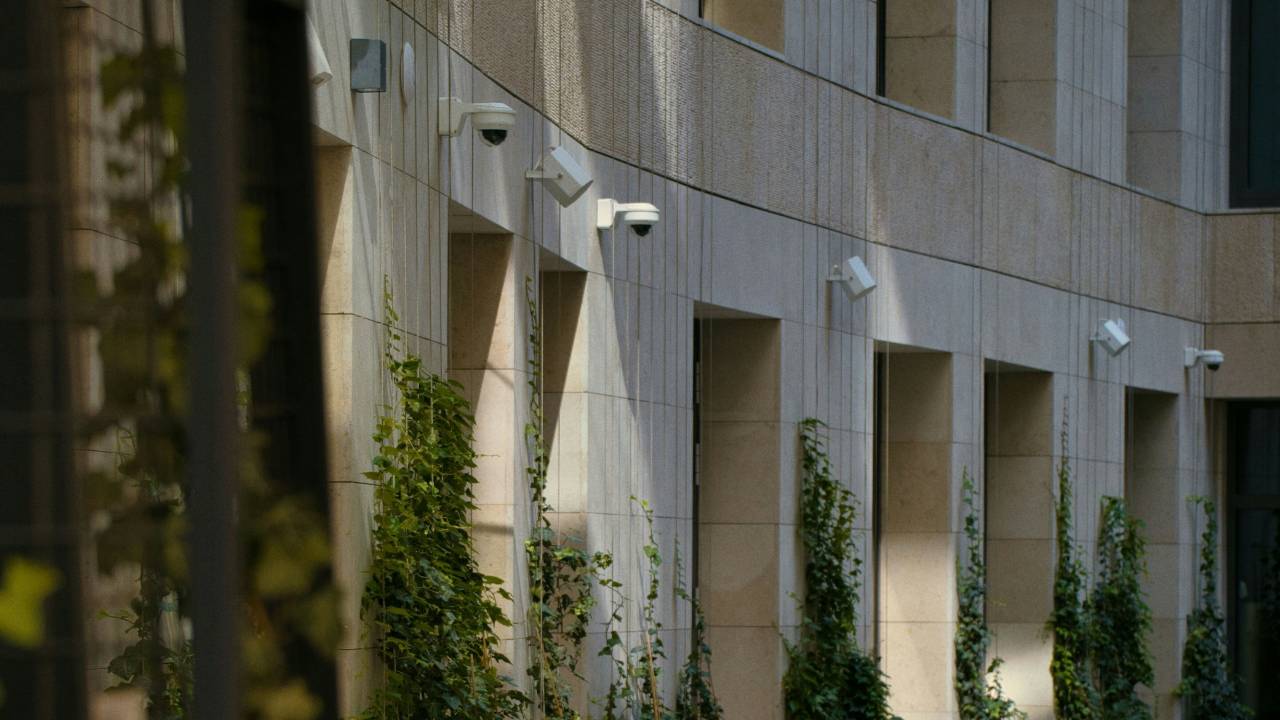
In the hospitality industry, creating a secure environment isn’t just about installing cameras—it’s about building trust. Every hotel faces a unique challenge: how do you protect your property, safeguard your guests, and maintain that welcoming atmosphere that keeps people coming back? The answer lies in sophisticated CCTV solutions designed specifically for hotels, where security meets hospitality without compromise.
Hotels aren’t like other businesses. You’re running a 24/7 operation where hundreds of people come and go, where privacy expectations run high, and where a single security incident can destroy years of carefully built reputation. The modern hotel surveillance system must be as sophisticated as the threats it guards against.
Think about it—your property has multiple entry points, vast public areas, secluded corridors, and valuable assets scattered throughout. Add to that the constant flow of guests, staff, contractors, and deliveries, and you’ve got a security puzzle that standard CCTV simply can’t solve. Hotels need surveillance that’s intelligent, discreet, and comprehensive.
The hospitality industry faces particular vulnerabilities. From opportunistic theft in lobbies to more serious incidents in car parks, the risks are real and varied. Your insurance company knows this—which is why they’re increasingly demanding robust security systems as a condition of coverage. But beyond compliance, there’s something more fundamental at stake: your guests’ peace of mind.
Let’s be frank about what happens when hotel security fails. It’s not just about stolen laptops or pilfered minibars. A single serious incident can trigger a cascade of consequences that reverberates through your business for years.
Consider this: hotels without proper CCTV systems typically experience significantly more security incidents than those with comprehensive coverage. But the real damage often comes after the incident. Negative reviews mentioning safety concerns can devastate bookings. Legal action from affected guests can drain resources and destroy reputations. And once word spreads that your hotel isn’t safe? Well, that’s a stain that’s remarkably difficult to wash out.
Modern guests expect security. They might not mention it in reviews when it’s present, but they’ll certainly highlight its absence. In an age where a single tweet about feeling unsafe can go viral, can you really afford to take chances? That’s why forward-thinking hoteliers are viewing surveillance not as a cost, but as essential infrastructure—as fundamental as heating or Wi-Fi.
For those looking for advice on choosing the best CCTV camera system, understanding these stakes is the first step towards making an informed decision.
Not all surveillance systems are created equal. The difference between basic cameras and a proper hotel security system is like comparing a torch to stadium floodlights. Modern CCTV solutions for hotels incorporate features that would have seemed like science fiction just a decade ago.
Where you place your cameras matters as much as the cameras themselves. Strategic positioning can mean the difference between comprehensive security and expensive blind spots. The entrance and lobby areas demand particular attention—these high-traffic zones are where first impressions form and where many security incidents begin.
Your surveillance cameras should create overlapping fields of view at all entrances, ensuring complete visibility of everyone entering or leaving the premises. The lobby requires a delicate balance: enough coverage to deter crime and capture incidents, yet positioned subtly enough to maintain that welcoming atmosphere. Nobody wants to feel like they’re checking into a maximum-security facility.
Corridors and lifts present their own challenges. These transitional spaces are where many incidents occur, yet they’re also where guests expect a degree of privacy. The key is positioning cameras to monitor activity without making guests feel watched. Strategically placed cameras at corridor junctions and lift lobbies can provide comprehensive coverage whilst respecting guest comfort.
Don’t forget your car parks and perimeter areas. These spaces are particularly vulnerable, especially after dark. Modern security cameras with low-light capabilities can transform these potential weak points into well-monitored zones. And with ANPR technology, you can track vehicle movements, adding another layer of security that guests genuinely appreciate.
Here’s where modern surveillance truly shines. Video analytics powered by AI doesn’t just record—it thinks. These systems can detect unusual activity before it becomes an incident, sending real-time alerts to your security team when something’s amiss.
Imagine a system that recognises when someone’s loitering in a restricted area, or when an individual’s been wandering the corridors without entering a room. Advanced analytics can identify these patterns and flag them immediately. It’s like having a security expert watching every camera simultaneously, never blinking, never getting distracted.
Facial recognition adds another powerful dimension. While respecting privacy laws, these systems can identify individuals on watch lists or alert staff when VIP guests arrive. People counting helps manage occupancy in real-time—invaluable for maintaining safety standards in restaurants, pools, or event spaces. The technology helps hotels operate more efficiently whilst keeping everyone safer.
Video analytics transforms reactive security into something proactive and intelligent. Instead of reviewing footage after an incident, you’re preventing incidents from occurring. That’s a fundamental shift in how hotel security operates.
Your CCTV shouldn’t exist in isolation. The best hotel surveillance systems integrate seamlessly with your broader infrastructure. When your cameras talk to your access control systems, magic happens. A door forced open triggers immediate camera attention. A lost keycard can be traced through video footage. Suspicious activity in one area can automatically adjust security protocols elsewhere.
This integration extends to alarm systems too. Fire alarms can trigger cameras to monitor evacuation routes. Intruder alarms can direct PTZ cameras to specific zones. Your entire security ecosystem works as one coordinated system, each element enhancing the others. It’s this kind of joined-up thinking that separates truly secure hotels from those just going through the motions.
Our CCTV solutions demonstrate how integration creates a security network that’s far more powerful than the sum of its parts.
Selecting CCTV for hotels isn’t like shopping for home security. You need systems built for commercial environments, designed to perform reliably 24/7, and sophisticated enough to handle your complex requirements. But where do you start?
The debate between IP and analogue cameras might seem technical, but the choice has real-world implications for your hotel. IP cameras offer stunning high-quality imagery—we’re talking about resolution so sharp you can read a credit card number from across the lobby (though privacy laws mean you shouldn’t). This clarity becomes crucial when you need to identify individuals or investigate incidents.
But it’s not just about pretty pictures. IP systems offer flexibility that analogue simply can’t match. Need to add another camera? With IP, it’s often as simple as running a network cable. Want to access footage remotely? IP systems make it effortless. The scalability alone makes IP the choice for most modern hotels.
That said, analogue hasn’t disappeared entirely. For hotels with existing coaxial infrastructure, hybrid systems can offer a cost-effective upgrade path. You keep what works whilst adding IP cameras where you need enhanced capabilities. It’s a pragmatic approach that many hotel operators find appealing.
One size doesn’t fit all in hotel surveillance. Different areas demand different solutions, and choosing the right camera type for each location is crucial for effective coverage.
Dome cameras work brilliantly in lobbies and restaurants. Their discrete design blends with décor whilst providing comprehensive coverage. Guests barely notice them, yet they capture everything. For larger spaces like ballrooms or conference centres, PTZ (pan-tilt-zoom) cameras offer incredible flexibility. A single PTZ can do the work of multiple fixed cameras, following action as needed.
Corridors call for different thinking. Here, discrete cameras that blend with the ceiling work best. You want coverage without creating that oppressive ‘Big Brother’ feeling. Modern corridor cameras can monitor extensive lengths whilst maintaining a low profile.
External areas demand robust solutions. Weatherproof cameras with infrared capabilities ensure your car parks and grounds remain secure regardless of conditions. And don’t overlook thermal cameras for perimeter security—they detect intruders in complete darkness, adding a sophisticated layer to your security that genuinely impresses.
For those curious about the evolution of this technology, these interesting CCTV camera facts provide fascinating context about how far we’ve come.
Here’s where things get serious. Installing cameras is one thing; doing it legally is quite another. The landscape of laws and regulations surrounding hotel CCTV can feel like a minefield, but it’s one you must navigate carefully.
In Ireland, GDPR isn’t just bureaucracy—it’s the law. And when it comes to CCTV in hotels, the rules are strict and specific. You must have clear, legitimate reasons for every camera you install. “General security” isn’t enough; you need documented purposes and proportionate responses to identified risks.
Signage is non-negotiable. Guests must know they’re being recorded, why, and who to contact with concerns. But here’s the thing—done right, transparency actually enhances trust. Guests appreciate knowing you take both their security and privacy seriously.
Data retention presents another challenge. You can’t keep footage indefinitely. Most hotels find 30 days sufficient for security purposes, but you’ll need clear policies and automatic deletion systems. It’s not just about compliance; it’s about demonstrating respect for guest privacy.
This is the tightrope every hotel walks. How do you create a safe and secure environment without making guests feel like they’re under surveillance? The answer lies in thoughtful implementation and clear communication.
Start with absolute no-go areas. Cameras should never capture images from guest rooms, bathrooms, or changing areas. Even the suggestion of such coverage can trigger severe legal consequences and devastating publicity. Similarly, be cautious around spa areas, pools, and anywhere guests might expect enhanced privacy.
Training your staff is crucial. They need to understand not just how the system works, but why privacy matters. When a guest raises concerns, your team should respond with knowledge and empathy, not dismissiveness. Create clear policies about who can access footage and under what circumstances. The goal is a system that protects everyone—guests, staff, and the hotel itself.
Let’s talk pounds and pence. A comprehensive CCTV system represents significant investment, but the returns—both financial and operational—can be substantial. Smart hotel operators view surveillance not as a cost centre but as a profit enhancer.
Your CCTV system is a goldmine of operational intelligence. Watch how guests flow through your lobby during peak times, and you’ll spot bottlenecks you never knew existed. Monitor your restaurant service, and you’ll identify training opportunities that boost efficiency. The cameras you installed for security become tools for continuous improvement.
Employee productivity often improves simply through the presence of cameras. It’s not about spying—it’s about creating accountability. Staff areas with CCTV experience fewer inventory losses and better adherence to procedures. When everyone knows their actions are recorded, standards naturally rise.
Then there’s the insurance angle. Insurers love hotels with comprehensive CCTV systems, often offering substantial premium reductions. But the real savings come from incident prevention and swift resolution. False claims against the hotel? Video evidence ends them quickly. Slip-and-fall lawsuits? Footage shows what really happened. These savings alone can justify your entire investment.
Here’s something that might surprise you: guests actually want CCTV in hotels. Many travellers report feeling safer in hotels with visible security measures, and it’s increasingly become an expected amenity, like Wi-Fi or air conditioning.
But it goes deeper than just feeling safe. When incidents do occur—lost property, disputes, accidents—CCTV helps resolve them quickly and fairly. Guests appreciate this efficiency. They might not mention security in positive reviews, but they certainly notice its absence in negative ones.
Creating a secure environment allows your staff to focus on hospitality rather than constantly watching for problems. This improved guest experience translates directly into repeat bookings and recommendations. In the hospitality industry, reputation is everything, and security underpins that reputation.
A comprehensive security checklist helps ensure you’re covering all bases in your approach to hotel safety.

Installing CCTV in a hotel isn’t like wiring up a house. The complexity demands professional approach and careful planning. Get it right, and you’ll have a system that serves you well for years. Get it wrong, and you’ll face endless headaches and compromises.
Start with a thorough site survey. Walk every inch of your property, preferably with a security professional, identifying vulnerabilities and coverage requirements. This isn’t the time for assumptions—you need hard data about distances, lighting conditions, and potential obstacles.
Create a coverage map that eliminates blind spots without over-engineering. Every camera should have a purpose, and overlapping coverage should be strategic, not accidental. Consider future expansion too. Installing extra infrastructure now costs far less than retrofitting later.
Think about your infrastructure holistically. Power, networking, storage—they all need careful consideration. Modern IP cameras can be power-hungry, and 4K footage devours storage space. Plan for growth, because security requirements only ever increase.
This isn’t a job for your maintenance team or the lowest bidder. Professional CCTV installation requires specific expertise, particularly in the hospitality sector. In Ireland, installers must be PSA licensed—it’s not just recommended, it’s required by law.
Look for installers with proven hotel experience. They’ll understand the unique challenges: working around guests, maintaining aesthetics, and integrating with existing systems. They’ll know how to run cables discretely and position cameras for maximum effectiveness with minimum visual impact.
Don’t underestimate the importance of ongoing support. Your CCTV system needs regular maintenance, updates, and occasional repairs. Choose an installer who’ll be there for the long haul, not just the initial sale. And ensure they provide comprehensive training for your staff—the best system in the world is useless if nobody knows how to operate it properly.
Technology doesn’t stand still, and neither should your security strategy. The CCTV system you install today needs to serve you well tomorrow, next year, and beyond. Future-proofing isn’t about predicting the future—it’s about building flexibility into your security infrastructure.
AI is revolutionising hotel security in ways we’re only beginning to understand. Behavioural analytics can now predict incidents before they occur, identifying suspicious patterns that human operators might miss. Imagine a system that recognises when someone’s casing your property or acting unusually—and alerts security before any crime occurs.
Cloud-based solutions are transforming how hotels manage their security. No more server rooms packed with recording equipment. Modern systems store footage securely in the cloud, accessible from anywhere, scalable on demand. It’s not just convenient—it’s revolutionary for hotel chains managing multiple properties.
Integration with IoT devices opens new possibilities. Your CCTV system can work with smart locks, environmental sensors, and even guest room controls. This connected ecosystem creates security that’s both more effective and less intrusive. The technology helps create seamless, intelligent security that guests barely notice but greatly benefit from.

There’s no one-size-fits-all answer. A 50-room boutique hotel might need 20-30 cameras, whilst a 200-room property could require 100 or more. The key is achieving comprehensive coverage without redundancy. Focus on critical areas first: entrances, lobbies, corridors, car parks, and high-value zones.
Budget between €500-€1,500 per camera for professional-grade equipment and installation. Remember, this includes not just the camera but cabling, recording equipment, and configuration. Whilst that might seem substantial, consider it against the cost of a single serious incident.
Absolutely, provided it’s been legally obtained and properly managed. Irish courts regularly accept CCTV evidence, but you must follow proper procedures. Ensure your system maintains footage integrity and establish clear chains of custody when evidence is required.
Most hotels find 30 days sufficient, balancing security needs with data protection requirements. Some high-risk areas might warrant longer retention, but you’ll need to justify this under GDPR. Remember, longer retention means more storage costs and greater privacy obligations.
No, and some areas absolutely prohibit them. Focus cameras on public spaces, entrances, and operational areas. Guest rooms, bathrooms, and changing facilities are completely off-limits. When in doubt, err on the side of privacy.
Professional systems include uninterruptible power supplies (UPS) that maintain recording during brief outages. For extended power loss, systems should fail gracefully, preserving existing footage and resuming automatically when power returns.
You’ve seen what modern CCTV can do for your hotel. The question isn’t whether you need upgraded surveillance—it’s how quickly you can implement it. Every day without proper security is another day of unnecessary risk.
At MJ Flood Security, we understand the unique challenges hotels face. We’ve been protecting Irish hospitality businesses for decades, combining cutting-edge technology with local expertise and genuine care for your success. Our team doesn’t just install cameras—we create comprehensive security solutions that protect your property, your guests, and your reputation.
Start with our free security assessment. We’ll survey your property, identify vulnerabilities, and design a system that addresses your specific needs. No cookie-cutter solutions, no unnecessary upselling—just honest, expert advice on protecting what matters.
Ready to transform your hotel security? Contact us today to schedule your assessment. Learn more about our services and discover why leading hotels across Ireland trust MJ Flood Security with their most critical asset: safety.
Don’t wait for an incident to reveal your vulnerabilities. In hotel security, prevention isn’t just better than cure—it’s essential for survival. Let’s work together to create a safer, more secure environment that your guests will appreciate and your competitors will envy. Because when it comes to protecting your hotel, good enough simply isn’t good enough.